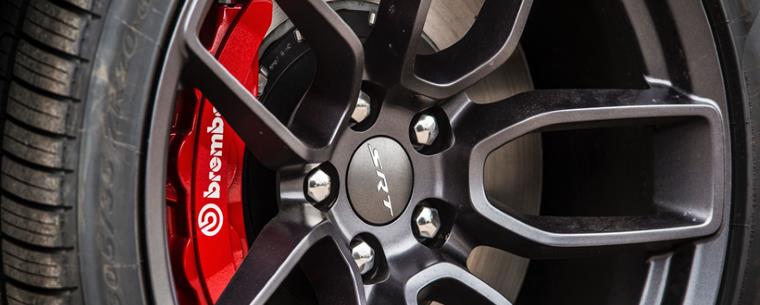Brake calipers can get extremely hot, reaching temperatures up to 500 degrees Fahrenheit. Brake calipers are an integral component of the braking system in a vehicle.
Their primary role is to grip the brake rotors when the brake pedal is applied, causing friction and ultimately stopping the vehicle.
As this friction occurs, heat is generated, and the brake calipers can become very hot. In fact, brake calipers can reach temperatures as high as 500 degrees Fahrenheit during normal braking.
These elevated temperatures can be attributed to the conversion of kinetic energy into thermal energy. It is crucial to understand the heat generated by brake calipers to ensure proper maintenance and prevent any potential damage to the braking system.
We will explore the factors affecting brake caliper temperature, potential risks associated with excessive heat, and ways to effectively manage and dissipate brake caliper heat for optimal brake performance and safety.

Credit: www.kwik-fit.com
Understanding Brake Calipers And Heat
Brake calipers play a crucial role in the proper functioning of a vehicle’s braking system. They are responsible for slowing down or stopping the rotation of the wheels when the brake pedal is pressed. It is vital to understand the relationship between brake calipers and heat to ensure optimal performance and safety.
When the brake pedal is engaged, the brake caliper squeezes the brake pads against the rotor, creating friction that converts the kinetic energy of the moving wheels into thermal energy in the form of heat. This friction helps in slowing down and stopping the vehicle.
Friction between the brake pads and rotor generates heat in the brake calipers. This heat is then dissipated into the surrounding environment through various cooling mechanisms, such as air ventilation slots, heat sinks, or brake fluid circulation.
The materials used in brake calipers, such as aluminum or cast iron, have different heat resistance properties. Proper material selection is crucial to ensure that the calipers can withstand and dissipate the generated heat effectively without compromising their structural integrity.
Brake calipers are designed to withstand high temperatures, with typical temperature tolerances ranging from 300°F to 600°F (149°C to 316°C). These temperature limits help prevent caliper damage, brake fade, and loss of braking performance.
Under extreme braking conditions, such as during prolonged and aggressive braking or when towing heavy loads, brake calipers can reach higher temperatures. Monitoring caliper temperature is crucial to avoid overheating, brake fluid boiling, and potential brake failure.
Excessive heat can lead to caliper distortion, seal damage, brake fluid degradation, and even caliper failure. Regular inspection and maintenance of the brake system, including calipers, is essential to identify and address any heat-related issues promptly.
Measuring Brake Caliper Temperature
Brake caliper temperature measurement is crucial in diagnosing and preventing brake system issues.
By accurately measuring brake caliper temperature, you can identify potential problems and take necessary actions to avoid brake failure and ensure smooth operation.
| Tool | Advantages |
|---|---|
| Infrared Thermometers | Non-contact measurement and quick results |
| Thermographic Imaging | Visual representation of temperature distribution |
Diagnosing Brake Caliper Overheating: Overheating brake calipers can lead to reduced braking performance, rotor damage, and even brake fluid boiling. Regularly checking brake caliper temperature can help identify signs of overheating and prevent costly repairs. Look out for symptoms such as excessive brake fade, unusual noises, and burning smells.
Indications of Overheating: If you notice a glowing red caliper, excessive heat radiating from the wheels, or uneven brake pad wear, it could indicate that your brake calipers are overheating. Make sure to take immediate action, perform a thorough inspection, and consult a professional if necessary.
Managing Brake Caliper Heat
Brake calipers can generate significant heat during operation, potentially affecting overall braking performance and safety. Preventative measures such as implementing cooling solutions are essential in managing brake caliper heat.
Brake caliper cooling kits and the use of thermally conductive brake fluids are effective strategies to regulate and dissipate heat, ensuring optimal brake system functionality.
By proactively addressing brake caliper heat, drivers can enhance the longevity and reliability of their braking systems.
Conclusion
In understanding how hot brake calipers get, it’s clear that they can reach high temperatures. Taking proper care of your brakes is essential to ensure safety and performance.
Regular maintenance and monitoring of the caliper temperature will help prevent overheating and potential damage.
Stay informed and handle your brake system with care.
